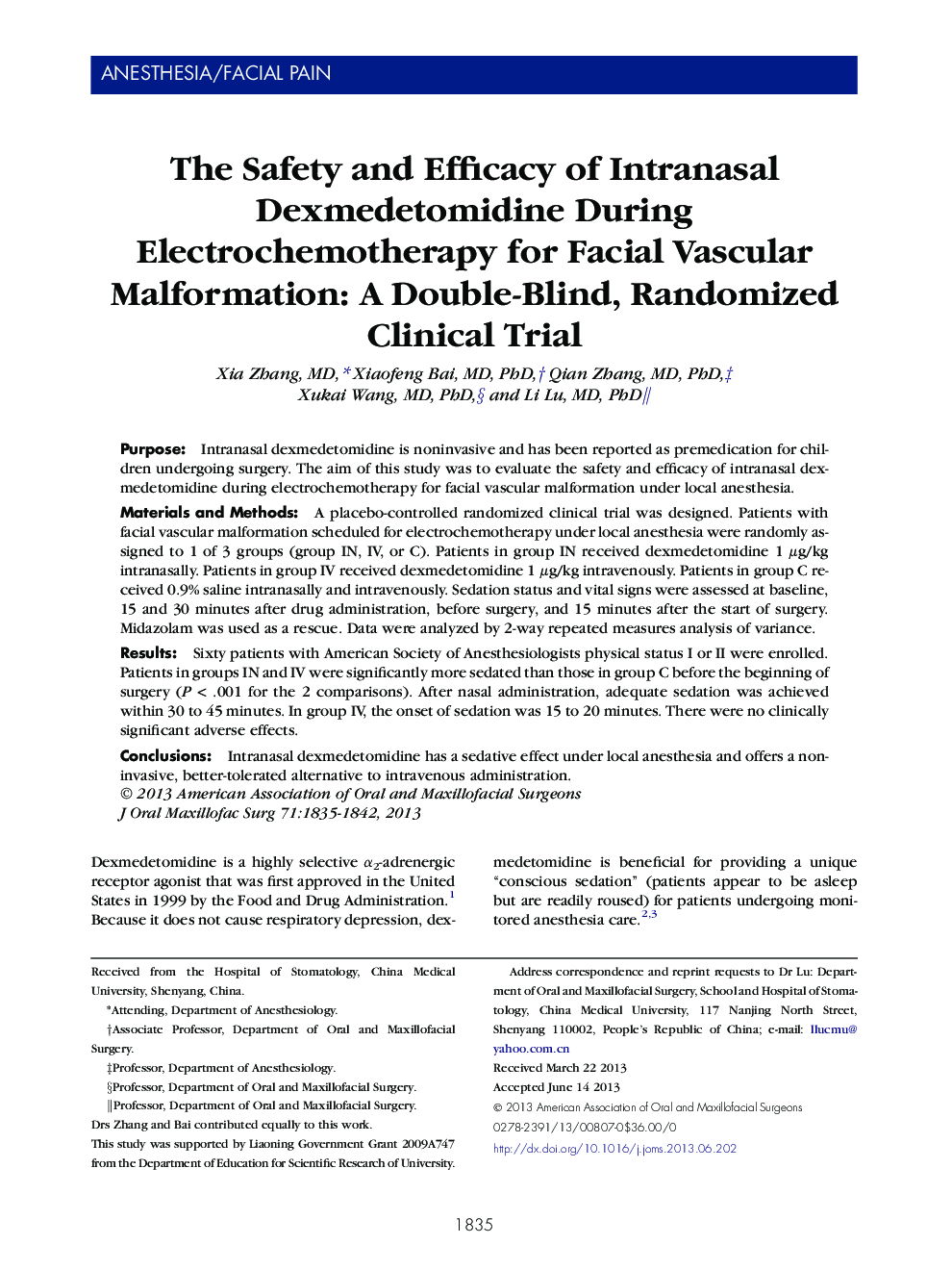| Article ID | Journal | Published Year | Pages | File Type |
|---|---|---|---|---|
| 3153563 | Journal of Oral and Maxillofacial Surgery | 2013 | 8 Pages |
PurposeIntranasal dexmedetomidine is noninvasive and has been reported as premedication for children undergoing surgery. The aim of this study was to evaluate the safety and efficacy of intranasal dexmedetomidine during electrochemotherapy for facial vascular malformation under local anesthesia.Materials and MethodsA placebo-controlled randomized clinical trial was designed. Patients with facial vascular malformation scheduled for electrochemotherapy under local anesthesia were randomly assigned to 1 of 3 groups (group IN, IV, or C). Patients in group IN received dexmedetomidine 1 μg/kg intranasally. Patients in group IV received dexmedetomidine 1 μg/kg intravenously. Patients in group C received 0.9% saline intranasally and intravenously. Sedation status and vital signs were assessed at baseline, 15 and 30 minutes after drug administration, before surgery, and 15 minutes after the start of surgery. Midazolam was used as a rescue. Data were analyzed by 2-way repeated measures analysis of variance.ResultsSixty patients with American Society of Anesthesiologists physical status I or II were enrolled. Patients in groups IN and IV were significantly more sedated than those in group C before the beginning of surgery (P < .001 for the 2 comparisons). After nasal administration, adequate sedation was achieved within 30 to 45 minutes. In group IV, the onset of sedation was 15 to 20 minutes. There were no clinically significant adverse effects.ConclusionsIntranasal dexmedetomidine has a sedative effect under local anesthesia and offers a noninvasive, better-tolerated alternative to intravenous administration.
